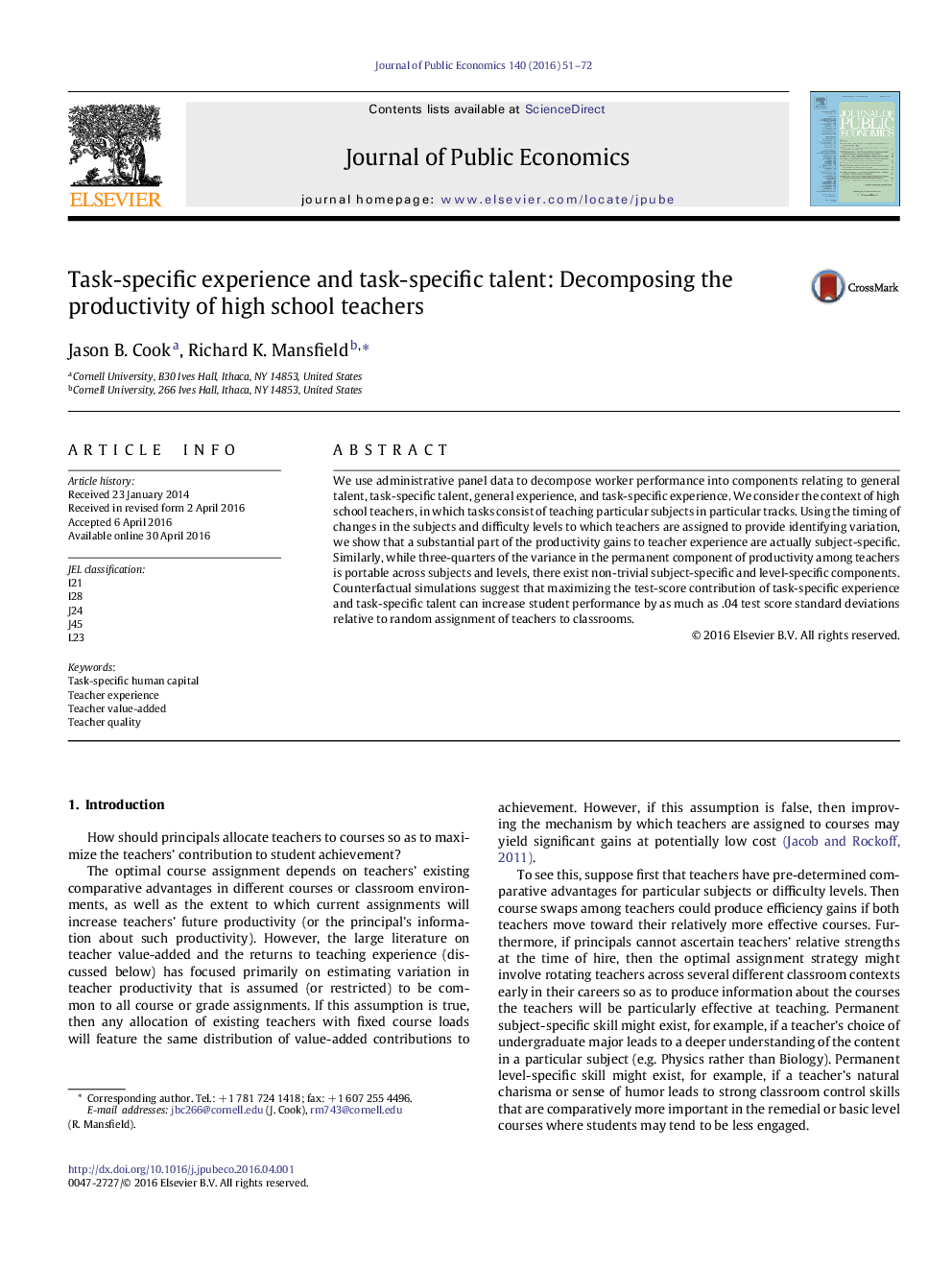| Article ID | Journal | Published Year | Pages | File Type |
|---|---|---|---|---|
| 968581 | Journal of Public Economics | 2016 | 22 Pages |
•We develop a method for decomposing worker productivity into four components: general talent, task-specific talent, gains to general experience, and gains to task-specific experience.•Our decomposition requires observable (but possibly noisy) measures of task-specific output along with mobility of workers across tasks.•We consider the high school teacher context in which a task consists of teaching a particular subject at a particular difficulty level.•We find that 75% of the variance in the fixed component of teacher productivity is general to all subjects and levels.•About a third of the gains to teacher experience are specific to the subject the teacher has taught.•Simulations suggest that maximizing the value of task-specific experience and task-specific talent could produce nearly costless efficiency gains on the order of .02 test score standard deviations.
We use administrative panel data to decompose worker performance into components relating to general talent, task-specific talent, general experience, and task-specific experience. We consider the context of high school teachers, in which tasks consist of teaching particular subjects in particular tracks. Using the timing of changes in the subjects and difficulty levels to which teachers are assigned to provide identifying variation, we show that a substantial part of the productivity gains to teacher experience are actually subject-specific. Similarly, while three-quarters of the variance in the permanent component of productivity among teachers is portable across subjects and levels, there exist non-trivial subject-specific and level-specific components. Counterfactual simulations suggest that maximizing the test-score contribution of task-specific experience and task-specific talent can increase student performance by as much as .04 test score standard deviations relative to random assignment of teachers to classrooms.
